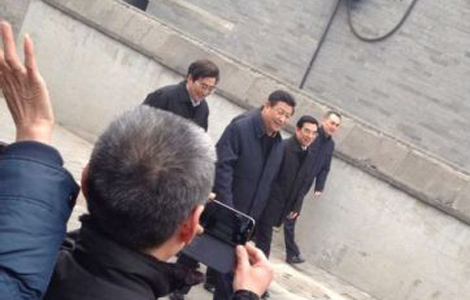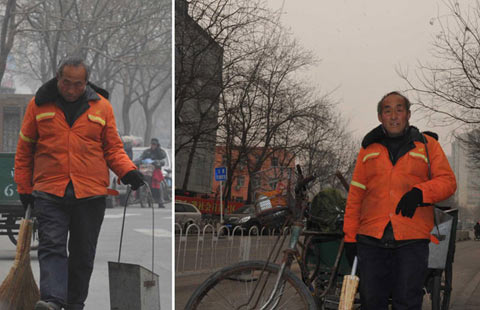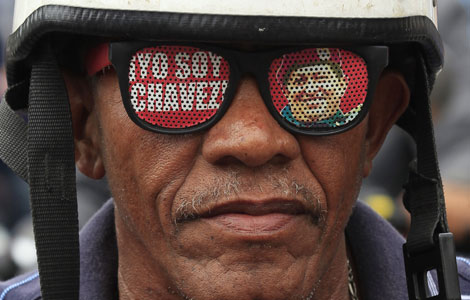HK anti-tourist protest good for no one
Updated: 2014-02-25 08:17
By William Daniel Garst (China Daily USA)
|
||||||||
Chinese mainland tourists are in the news again. But unlike the past when web postings went viral about their uncivil behaviors in France and Egypt, the latest headlines revolve around Hong Kong residents' protest against visitors from the mainland.
On Feb 16, about 100 Hong Kong residents marched from the Tsim Sha Tsui Star Ferry pier to Canton Road, a shopping street heavily frequented by tourists, including those from the mainland. The protesters referred to the tourists as "locusts" devouring Hong Kong's resources, calling the mainland visitors "shina", a derogatory term used by the Japanese to describe Chinese people after the 1895 Sino-Japanese War.
Several Hong Kong officials have condemned the protest against mainland tourists. On Feb 20, Equal Opportunities Commission Chairman York Chow Yat-ngok said it was possible to amend Hong Kong's race hate laws to cover discrimination against members of the same ethnic group. And Hong Kong's Security Secretary Lai Tun-Kwok said: "Tourists were not only disturbed and frightened, they also felt insulted."
Referring to mainland tourists as shina was especially insensitive of the protesters. But my first reaction to it was to "get a grip". Locals across the world love to hate tourists and devise pejorative terms for them.
Although traveling is a wonderful and mind-broadening experience, it often requires one to have a thick skin. And as the recent upsurge of xenophobia in even former bastions of European tolerance like the Netherlands and Scandinavian countries indicate, the rising cross-national interaction associated with globalization has not made for greater understanding among people. In this instance, the old adage, familiarity breeds contempt, rings true.
This is not the first time Hong Kong residents have expressed anger over mainland tourists. In 2012, a group of Hong Kong residents issued a full-page advertisement in a newspaper which depicted mainland tourists as a giant locust over the city's skyline, while a video of a shouting match between mainland visitors and locals on a train went viral.
Hong Kong residents can be excused for resenting the earlier mass buying of infant formula by mainland tourists, which depleted supplies in local stores, although Hong Kong authorities have now taken steps to limit such purchase by non-residents.
More mystifying is why the latest protest targeted tourists shopping at Canton Road. This street is lined with luxury stores, and it is hard to imagine that by patronizing such establishments, foreign shoppers are depriving Hong Kong residents of essential goods. The money foreign tourists spend is vital for the well-being of these businesses, and the same can be said about the economy of Hong Kong in general. Tourism accounts for 4.5 percent of Hong Kong's GDP and provides jobs to about 600,000 people. It is now regarded as one of the four "pillar" industries of the metropolis, alongside logistics and transportation, finance, and professional services.
Tourists from the mainland play a key role in supporting Hong Kong's tourism sector; they are expected to comprise 75 percent of the 59 million people likely to visit the city this year. This overall number of tourists represents a double-digit increase over the previous year's figure. And by 2030 the annual number of tourists to Hong Kong is expected to touch 100 million, the majority of whom will be mainland residents.
According to media reports, a Hong Kong government report claiming the city can cope with this influx of visitors was one of the reasons for the latest protest against tourists. In response to public skepticism about this claim, some Hong Kong politicians have called for a border-arrival tax.
This pandering to anti-tourism hysteria is a disservice to Hong Kong. A border tax is first of all unworkable-if directed only at tourists, many would evade it by claiming to be business travelers and carrying forged documents to prove that. The move would also divert tourists away from Hong Kong, harming the local economy and flying in the face of the city's long-standing openness. Visits to ecologically sensitive nature sites in the city should certainly be controlled. But Hong Kong is a large metropolis with a well-developed infrastructure, and city officials are right in believing that it can absorb more visitors.
Also, increasing numbers of mainland tourists are opting for bare-bones individual travel in the "rough" mode. For example, one of my close friends, a delightful 20-something woman from Henan province recently returned from an extended trip to Laos, Cambodia, Vietnam and Thailand. She stayed in hostels and eschewed shopping in favor of taking in the sights, including less touristy but worthy places. Her total expenses for the vacation: less than 10,000 yuan ($1,642).
Moreover, one can be a bit skeptical about whether the predicted future flood of mainland tourists to Hong Kong will really materialize. Although many mainland residents still travel just to shop-few places are better for that than Hong Kong-this behavior is changing, which can be seen in the surging popularity of adventure travel and eco-tourism.
The frictions between some Hong Kong residents and mainland tourists are similar to the experiences of other "rude" tourists' decades ago. Playing up or politicizing the frictions will not help Hong Kong tourism and eventually hurt local residents' interests.
The author is an American corporate trainer.
(China Daily USA 02/25/2014 page12)
Most Viewed
Editor's Picks

|

|

|

|

|

|
Today's Top News
Beijing protests US post on Tibet
President Xi pops in to Beijing's hutong
Pentagon plans to shrink army
Fight over race in admissions
US ready to aid Ukraine financially
Huawei straps on smartwatch play
Consumer economy 'not' happen
Chinese acrobats meet Ringling Bros
US Weekly

|

|













